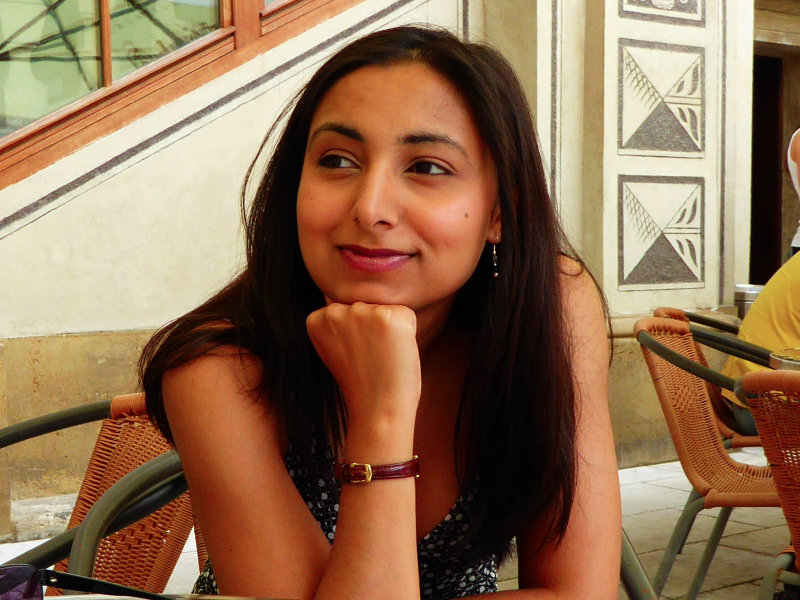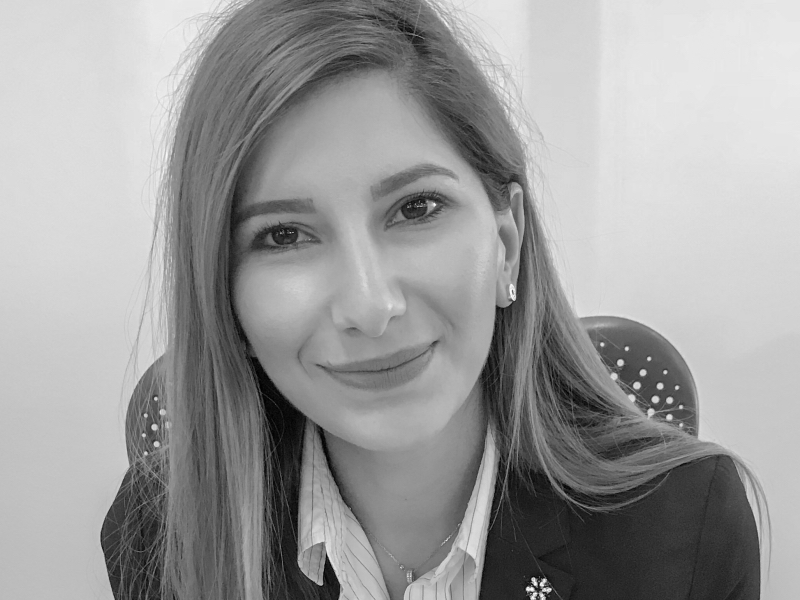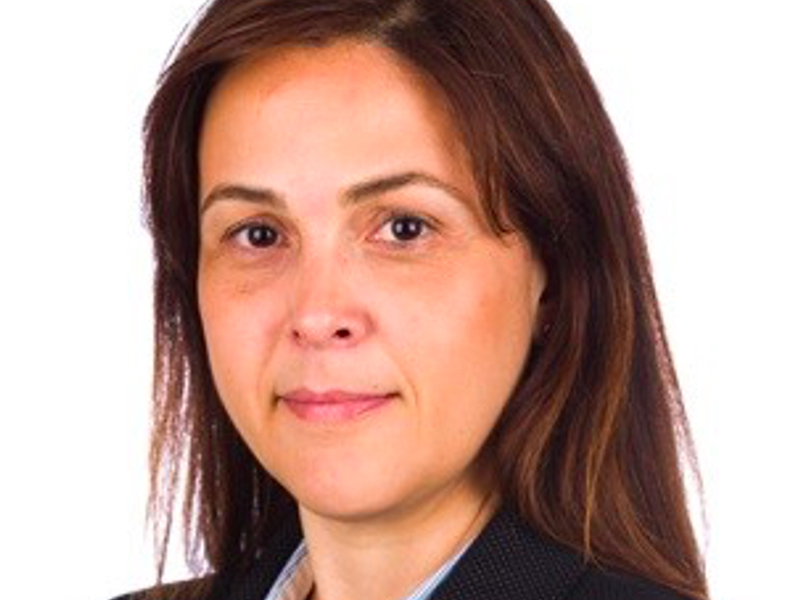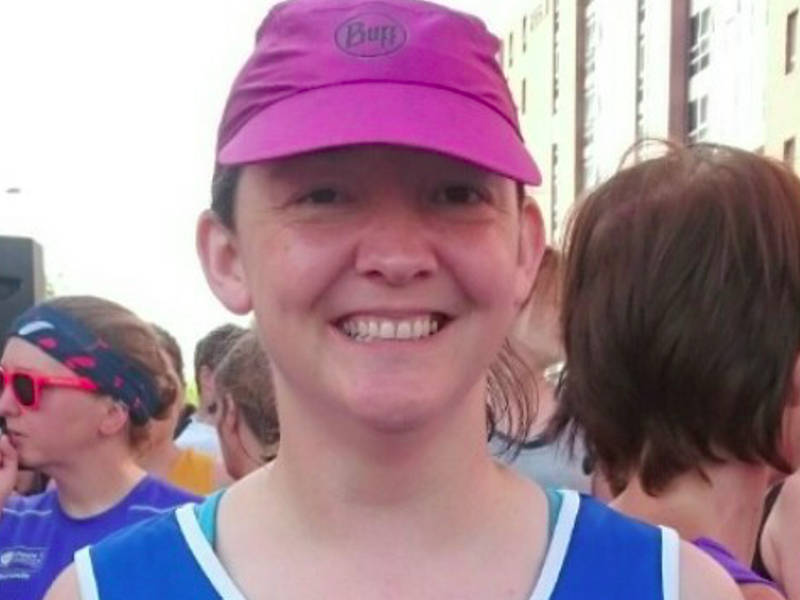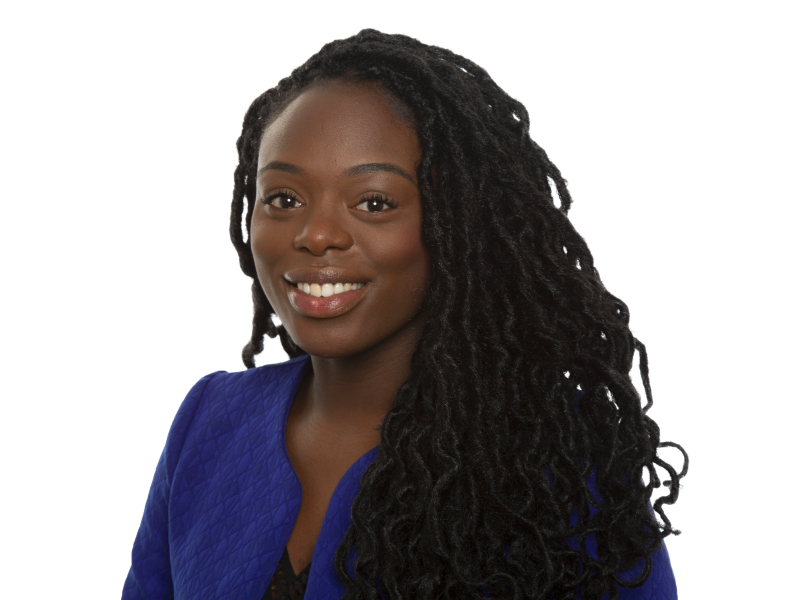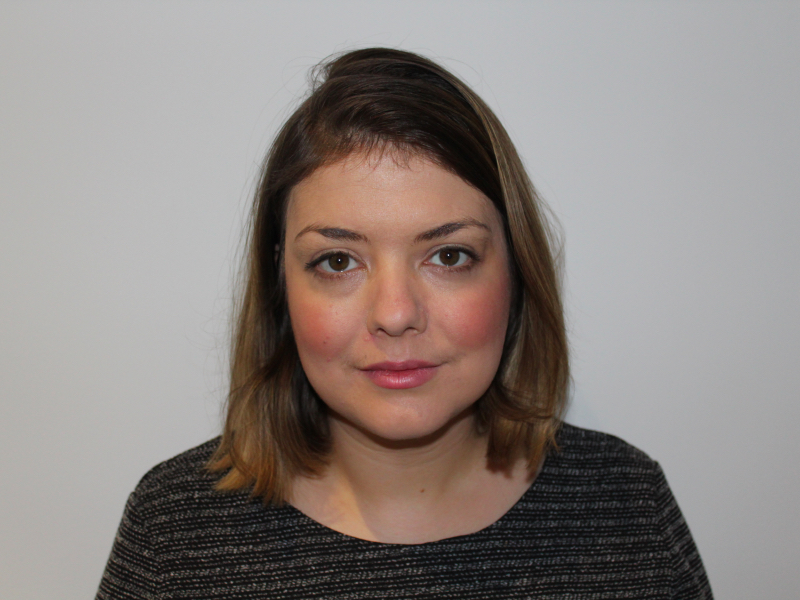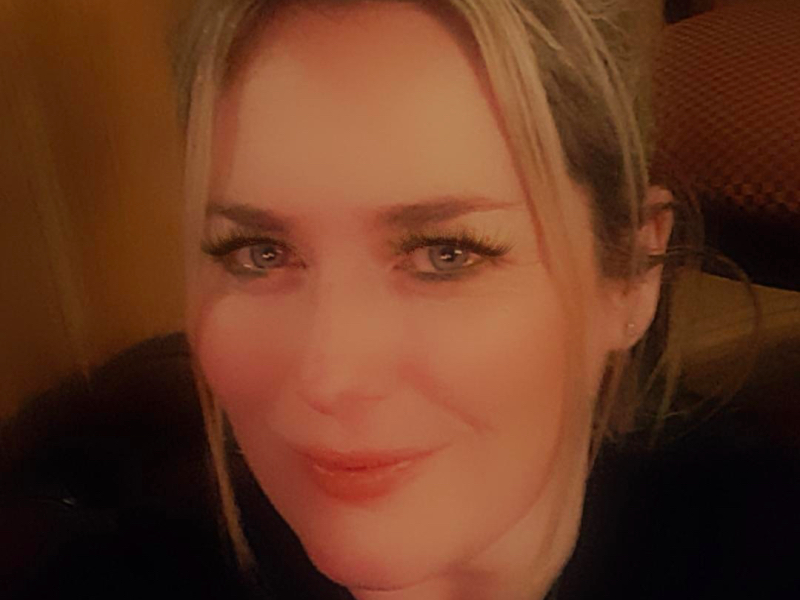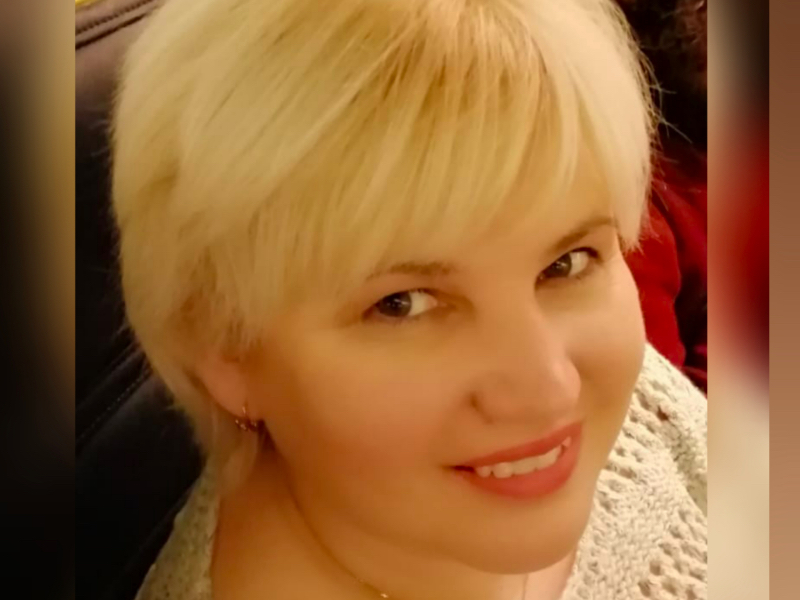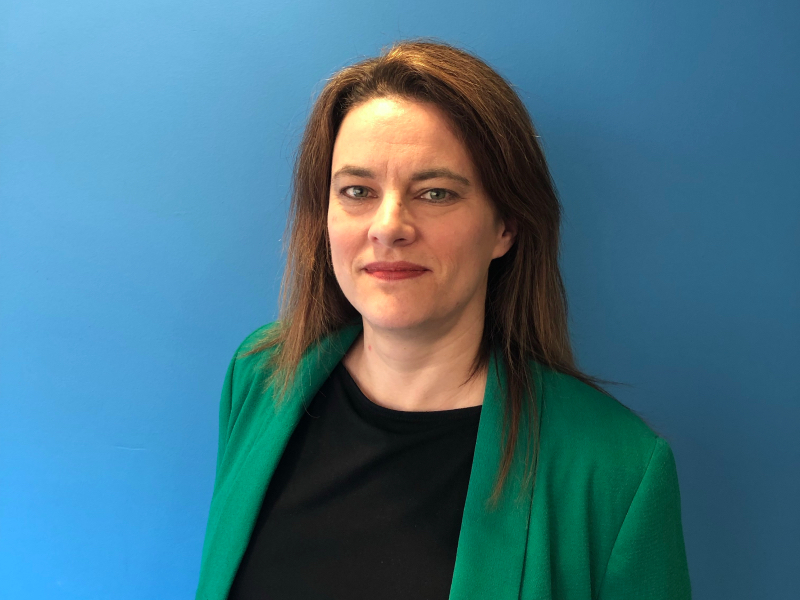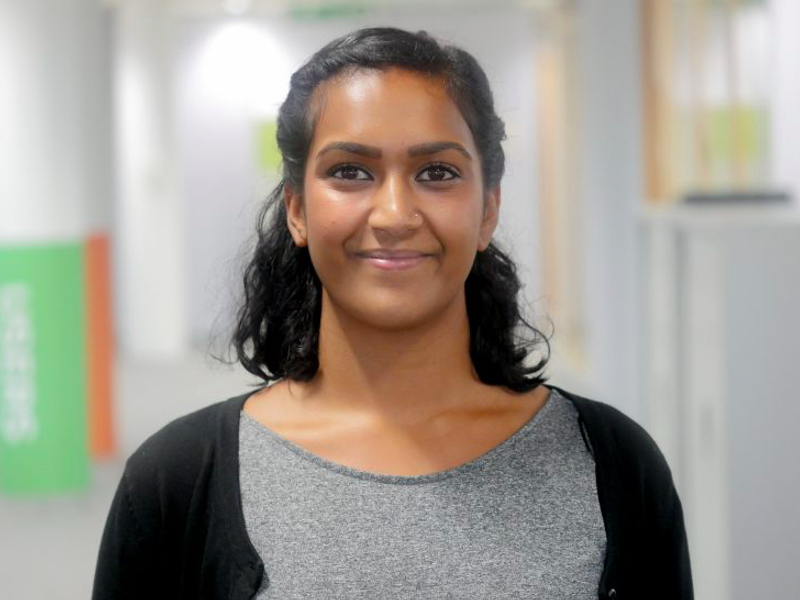Rain Irshad | STFC RAL Space
I always knew I wanted to work in space. When I was younger, I wanted to be an astronaut and wrote to NASA. They told me what I needed to do and I started working towards those goals.
I got a Flying Scholarship with the RAF so that I could learn to fly planes. I wrote to Universities to get work experience with research groups. Eventually, I got a place at Oxford University to read Physics.
At University, I was diagnosed with endometriosis and realised I wasn't going into space. Instead I did a Master's in Instrumentation Systems at UCL where I worked on a concept for an adaptive optics x-ray space telescope and I realised that I could still explore space by sending instruments up there. I did a doctorate in Atmospheric Physics at Oxford where I learned about hardware and software development for measuring atmospheric aerosols and was able to gather data that would improve the integrity of satellite measurements from space. After that, I spent four years as a Post-Doctoral Researcher working with the Planetary Group at Oxford, and teaching in my spare time. There, I worked on everything from lab-based experiments to make the kinds of gases you find on Jupiter, to seismometers for measuring Marsquakes. I designed and patented an instrument for measuring atmospheric temperatures and that became my first instrument in space.
Eventually, I moved to RAL Space to work as a Systems Engineer and began looking at larger projects. I was the Lead Systems Engineer on a proposal for a mission measuring Exoplanets (planets orbiting other stars) which involved coordinating organisations across 13 different countries. I led a project to look at the probability of life surviving on Phobos and managed a project to develop a Highly Miniaturised Radiation Monitor for space, as well as working on other projects. I continued to work on the Martian seismometer instrument which landed on Mars in 2018 as part of NASA's InSight mission.
In 2015 I took on the role of Autonomous Systems Lead at RAL Space and managed a small team working on robotics for testing space rovers and navigation software. I realised that this technology could be adapted for other applications. After travelling to Cambodia on holiday, I realised that there was still a major problem with landmines across the globe and proposed a system for autonomous landmine sensing using our robotic technology in South East Asia. I was awarded funding through the Global Challenges Research Fund to develop this work and am currently working with Fardoulis Robotics, Buckingham University and the Mines Advisory Group to develop a solution.
On the space side, I'm working with the UK and European Space Agencies on establishing facilities such as the Harwell Robotics and Autonomy Facility as well as Sample Curation Facilities to support a future Mars Sample Return Programme.
I am also a STEM ambassador and act as a mentor for young men and women in STEM. I give talks to schools and University students and like to be involved in Outreach programmes when I have time.
Rand Alkhatib | Arcadis
Rand believes in her ability as a woman engineer to make an impact in the world.
This comes from a strong drive for social welfare and improvement, shaped by her childhood in Baghdad. She is continuously demonstrating being bold and knows that failing is an acceptable part of improving.
Rand comes from a family of doctors, yet she decided to follow her passion and study Civil Engineering. She started her career in 2014 with Arcadis Middle East, where she became part of the Conveyance team (Water Sector) and has used her set of skills and knowledge in preparation of Wet Utilities masterplans for cities like Dubai and Abu Dhabi. In 2017 Rand transferred to Arcadis UK where she focused on improving water resilience for UK’s major water companies and creating optimised solutions for the networks considering capital and operational costs, resilience, water quality and hydraulic performance using new technologies.
In her second year, Rand was selected as one of the top 3 globally for Arcadis’ Global Shapers; a highly selective program designed for young professionals with prospects of shaping the future of Arcadis. And currently acting as global shaper ambassador to young professionals.
In 2018 and in celebration of International Women in Engineering day in the UK. Rand was selected as one of her company’s role models in that year of engineering.
Rand was also successful in securing a place on the Women in Engineering Course with STEM careers for further development, sharing experiences and creating strong women in engineering network. She also actively presents her company in University career fairs to promote careers in STEM.
Rand played an integral part in launching Roots of Arcadis in Dubai (A program designed to provide leadership and growth opportunities to young professionals and foster a sense of collaboration and culture-sharing across business lines). She was also elected by senior leaders to be Arcadis’ young representative and committee member in ACE (Association of Consultancy and Engineering); and through her role, Rand has helped junior Arcadians to expand their professional networks.
Rosario Barcena | Systra
I'm a Chartered Civil Engineer with over 15 years’ experience specialising in the management of design, construction and supervision of infrastructure projects as well as winning work, mainly within the rail industry.
I arrived in the UK as an Erasmus student from Spain to finish my engineering degree. My intention was to return after a year with international experience and fluent English; a valuable asset in the Spanish engineering market, i.e. a good catch. The opportunity arose to apply for a scholarship during that year, I was successful and went on to complete a Master’s Degree and subsequently secured a job as a graduate civil engineer in York, where I discovered the rail industry. My 8 years’ experience with Jacobs was fascinating and the years flew by, as I became a Chartered engineer and received a long-standing service from my company!
Throughout this time, I’d continued to feel the need to return home, Spain’s High Speed Rail (HSR) was at its peak and I decided it was a good time for me to get involved in this and other international major projects. After 5 years in Spain and having spent 3 year supervising delivery of the Madrid-Valencia HSR Line I realised that the UK had become my home and luckily my HSR experience allowed me to return to the UK to work on HS2, developing the route options between Birmingham and Manchester (Phase 2). Later I joined Tony Gee and Partners to develop my consultancy and engineering management, where I became Regional Director. My passion for major projects continued to grow, and I needed a bigger firm to make a difference and create a legacy in my industry. Now, I am a Project Director with SYSTRA Ltd, I am responsible for two of the sections (N1 and N2) of the London to Birmingham Route (Phase 1) of HS2, so back on a major project and working hard with our Strategic Growth Director to secure work on transformative railway schemes around the world.
Kay Cairns | HM Passport Office
I began working for the Civil Service in January 2010 as a support clerk for HM Passport Office and quickly established myself as capable of more.
I regularly supported change and identified ways of improving our processes. I became temporarily promoted to a Passport Examiner and carried out this role on and off for a number of years, depending on business needs.
I applied for promotion a few times but wasn't successful at even securing an interview. I decided I needed more development and applied for the Civil Service Local NE Academy. This is a 12 month development programme aimed at those who have the potential of becoming our future leaders but have identified areas that require development in order to achieve that goal. I was accepted and took part in this placement during 2017, and I have never looked back. I was able to work with colleagues across the whole Civil Service and develop a project that I was really invested in and passionate about.
By the end of 2017 I had secured a promotion to Passport Officer on a permanent basis, and had attended two interviews at Executive Officer/Operational Team Leader level. When the Civil Service Local NE Academy came to an end I didn't want my development to be over, so I applied for an additional role as Volunteer Project Lead. This was also within Civil Service Local but was balanced with my 'day job', and my role was to promote volunteering across the Civil Service, not just in my local Passport Office.
From January 2018 I began making contact with other government departments in the North East to establish their current volunteer commitment and promote the opportunities I had secured with local charities. The opportunities offered had been so successful within my own office that I began planning a more solid structure to volunteering within HM Passport Office Durham. I made the proposal to our Head of Operations and received the green light to launch our own structured volunteer programme.
Staff now have a single point of contact, myself, to discuss the volunteer opportunities available and all information needed. Volunteering is great for the workplace as it creates stronger links to the community and encourages corporate social responsibility, actively showing support for under-represented groups of the community. But the benefits for the individual, the charity, and their service users are immeasurable. Staff feel a sense of self-worth, increased confidence and could have the opportunity to develop their key skills. This in turn will make them feel happier in the workplace and improve office culture. In turn, this contributes towards the Civil Service commitment of 30,000 days to support the voluntary sector per year.
I am currently on the merit list for a permanent Operational Team Leader role, and continue to monitor, promote and develop the volunteer project. As you can probably tell, that is the real area I feel most passionate about.
Alieda Moore | Bank of England
Alieda is currently Deputy Agent for Greater London at the Bank of England, acting as the Bank’s ‘eyes’ and ‘ears’ to connect Bank policymakers with London businesses and communities.
Through meetings with senior executives across London, Alieda gathers business intelligence to inform monetary and financial stability decisions, such as the setting of UK interest rates. She also acts as a public speaker explaining the Bank’s policies to businesses, local communities and schools.
Prior to this, Alieda held the position of Private Secretary (Chief of Staff) to the Executive Director for Resolution, and started her career at the Bank as a senior analyst leading on numerous work streams in preparation for a live bank failure.
Alieda previously worked as a Consultant at Deloitte and Intern Goldman Sachs. She graduated with a First Class Honours in Economics from Loughborough University and was awarded the Head of Economics Department Prize (2012/13).
Alieda is co-chair of the Bank of England Ethnic Minorities (BEEM) network and has recently led on a successful launch of a new strategy that focuses on further senior engagement on BAME issues and initiatives aimed at making the network more inclusive to BAME and non-BAME staff. She is a mentor to one of the Bank of England African-Caribbean Scholars and has also sat on the Steering Group of the Women in the Bank network.
Charlotte Morphet | London Borough of Waltham Forest
Charlotte is a chartered urban planner working at the London Borough of Waltham Forest as a principal policy planner.
In her role, she is developing a new 15-year spatial strategy, the Local Plan that will guide and manage development in the area for new homes, jobs and associated infrastructure. Charlotte specifically leads on policy development for the Lea Valley Corridor, housing and culture. Prior to this she worked in the private sector providing planning advice.
Apart from work, Charlotte is active within her profession. She is dedicated to diversity, equality and inclusion in the planning profession and wider built environment. In 2012 she co-founded Women in Planning, which has 13 branches across the UK. The aim of this network is to promote a diverse, equitable and inclusive planning profession. Beyond this, Charlotte has a passion for supporting early career professionals. Currently she is a Trustee and Director of the Planning Officers’ Society, where she chairs the early careers network and think-tank, NOVUS. Previously she was a Trustee for the Royal Town Planning Institute with responsibility Young Planners.
Sarah Doherty | Adjudicator's Office
I have worked for HMRC since 2003.
I have undertaken a range of roles from helpline advisor, caseworker to external facing roles as an agent relations manager along with a range of management roles.
As an agent relations manager I delivered presentations at a series of private sector CPD conferences to improve voluntary compliance. I have extensive experience in operational roles, both as a manager and a caseworker and have implemented high profile projects within my directorate.
I joined The Adjudicator's Office in 2017 to develop an induction programme for new starters and quickly expanded my portfolio of responsibility. I now inform on key strategic decisions and have management responsibility of the Business Management Team, leading on the Adjudicator Office transformation programme. I also have recent experience of complaints handling as a HMRC senior complaints team leader.
I am passionate in supporting The Adjudicator’s Office Vision to use learning from complaints to improve services to customers. I have a degree in English Literature and have also studied Economics.
Agata Faro | The Insolvency Service
I’ve been working at the Insolvency Service for 14 years.
I started my journey there as an agency staff at admin post and then secured permanent contract as a case officer with Official Receiver’s services. In 2009 I moved to Long Term Asset and Distribution Team and now manage a busy Property team (Family homes & Charging orders) as it is the only team in the UK that deals with the insolvent individual’s family homes. I am responsible for the delivery of different teams set objectives and activities that we have agreed to do this year. I also hold the responsibility to support the delivery of ministerial and agency targets and to build strategic relationships across the agency and with our external stakeholders.
Alongside my ‘day job’, I have a huge passion for spreading the message of equality, feminism and the right life choices not only within our organisation but also with other government departments, local communities and young people. In 2010 I volunteered as an Events Organiser for our local charity, which I continuously still take part in, as well as being a Chair of the charity. As a Chair I managed to deliver one of my long-term projects where I set up Lithuanian language classes for children aged 4 to 15 at our Supplementary School. As a result, I have built new working relationships across our community and external stakeholders sharing best practice and developed an action plan. This was done with the aim of making sure a difference can be made when helping the children of our community and that they would be impacted in the most effective and positive way from this. Currently our school is becoming popular in our county and is forever expanding. This can be seen from our recent achievement where we were presented with the Golden Award from the National Resource Centre of Supplementary Education.
At work, I am a deputy Chair for the Women’s Network Group, a member of the Employee Assistance Programme (EAR) and also a member of the Cross Government Women’s Network Group. I am very passionate about the idea of wanting to do more to improve the talent pipeline and provide a venue for women to support each other. I find that I am not afraid to be challenged as I have organised and hosted various events across our organisation. This includes members which genuinely engage across the business, from which networking for senior leaders to women with aspirations have been arranged in result. This involved working with the local river Orwell Beach Clean, Equaliteas and Suffragette flag relay. As a result, our network is now greatly expanding.
In November 2018 I joined the Civil Service Young Leadership Academy and took leadership of a project where as a team we are aiming to come up with an interactive and educational tool for children aged 7 to 9. Consequently, this will help them make the right choices and at the same time promote Civil Service. With the increased violence, cyberbullying, drugs and children grooming I cannot stay back and do-nothing. Children at this age don’t take the time to deeply reflect and raise their own self-awareness about their innermost desires and can be influenced by peers or “bad” adults. Our children are our future. Being a mum of 3 I deeply understand this concern and want to be an advocate to children like so where I can provide a sense of guidance and be someone who can help children to understand who they are and what they value. Additionally, I am also responsible for the liaison with the education department and local schools to run the project and already managed to gain great results with the project.
Over the years, I’ve worked on a various exciting projects with tight deadlines that I’ve managed to stick to and always achieve a positive end result. From this, I have built strong relationships with colleagues across the whole organisation and with external stakeholders across Civil Service and external Government. As a result, I’ve managed to develop some of those relationships into successful collaborative projects.
In my management roles I’ve learned to manage people who are paid to do their job as well as managing volunteers thus allowing me to work with a range of people with different work ethics. By widening my challenges at work, I feel that am forever expanding my awareness, learning new ways to better myself and allow myself to learn from my mistakes. Doing so, this allows me to refine my management style on a daily basis. Learning new skills is something that I find is very important and so I strongly believe that everyone should be given a chance to learn and develop their skills to allow them to do their job well. Staff’s development and training is the most important enabling factor that enhances organizational capabilities. At the same time, I want to help staff to understand why their job is important and what role they play in overall organisational delivery. I believe that the best factor within a work place is when you can trust people you work with and you let them have that freedom. Naturally I sometimes face some challenging situations in my role and occasionally must make tough decisions. To enable myself to positively resolve them I use skills such as positive attitude, resilience and proactive approach.
From this, I consider myself as being hard working and well organised and committed to do well individual and will strive to deliver excellent results.
Judith Hardisty | Health and Safety Executive
I grew up on a farm in Yorkshire, where I learnt a lot about gender roles and expectations that I didn’t conform to.
I studied languages at university and learnt about cultures, about the things that make us different and things that make us the same.
I like to make things better for people, and my career has been about improving services in the public and private sectors. I love working with individuals, leaders and organisations around change and engagement, with diversity and inclusion at the core of what I do.
I am Co-Lead of the new Gender Equality Network at the Health and Safety Executive, raising awareness of gender issues, challenging stereotypes, supporting people to speak up against bullying, harassment and discrimination and informing HSE policy. We run regular GENtalks to inform, engage and inspire people about gender equality.
I have chickens in my back-garden, it’s the farmer in me.
Vimla Appadoo | FutureGov
As a Service Designer at FutureGov, I've been bringing my passion for Service Design and user-centred services to the forefront of public sector innovation.
At 21, I co-founded Experience Matters consultancy, winning the NHS CCG as my first client. Since then, I also co-founded SheSaysMCR, managed DrinkaboutMCR and managed Manchester Social Entrepreneurs. I have been an advisor to the Youth Charter, I am a Regional Ambassador for the Holocaust Educational Trust and I am currently on the board for the Big Youth Group to help young people to define their own career paths in the UK.
I have been an advisor on international government tech missions and a mentor for various startup programmes. In 2016, I was voted on to the Northern Power Future List and in 2018 won the Young Digital Leader of the Year award at Digital Leaders. Throughout my career, I have remained conscious of my decisions and focus to bringing passion into my work, to make continuous a difference.
I strongly believe in representing under represented voices across platforms, so that we can begin to shift the narrative so that more people can create the changes that they want to see to be happier and healthier and live more fulfilled lives.

